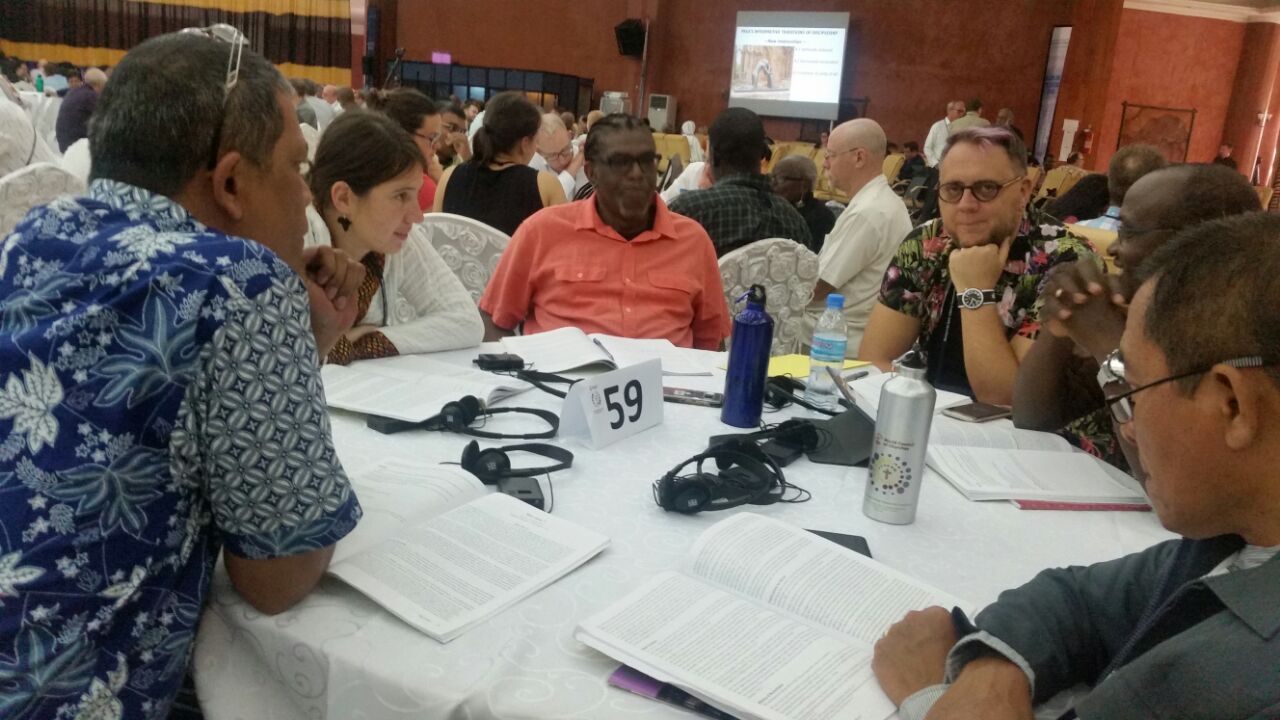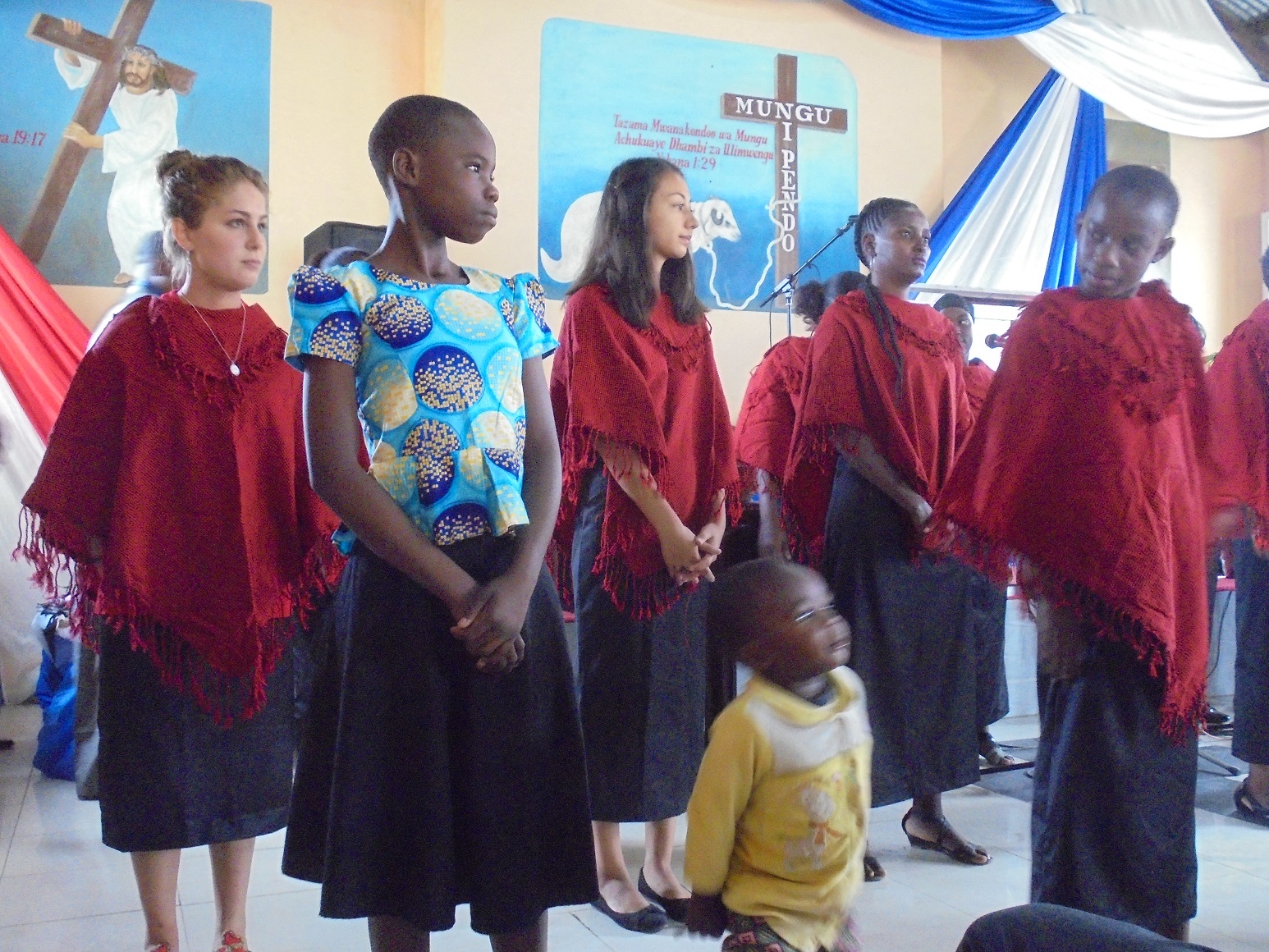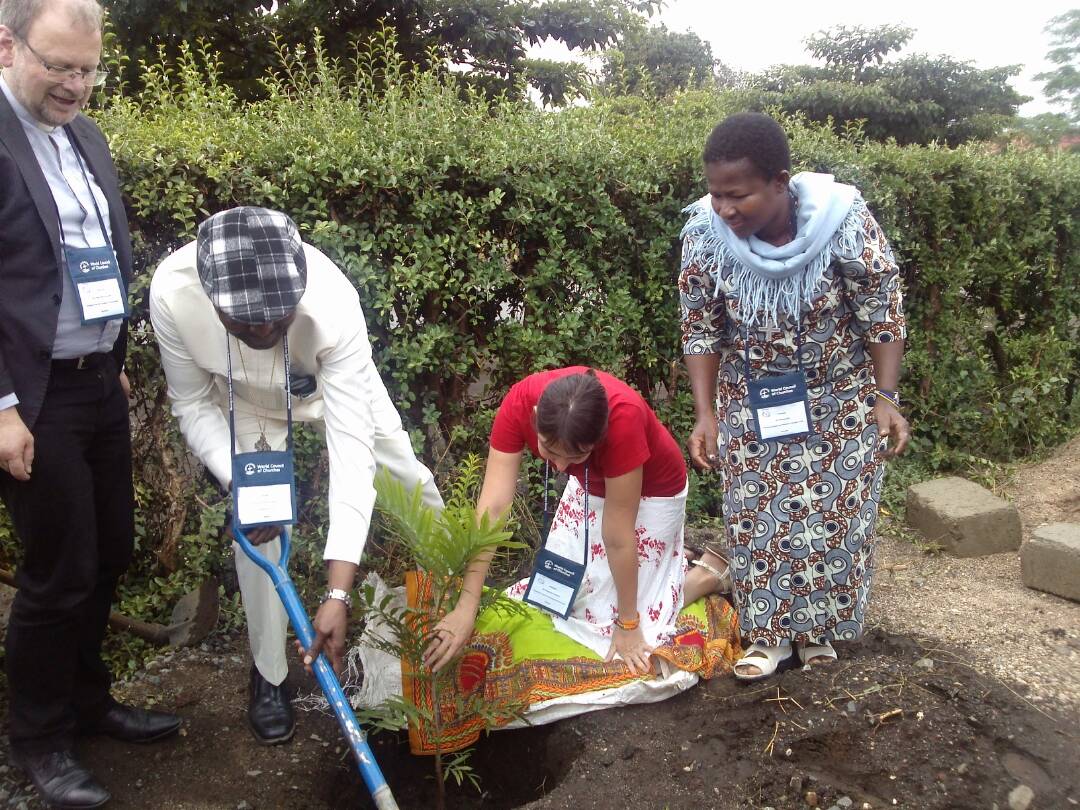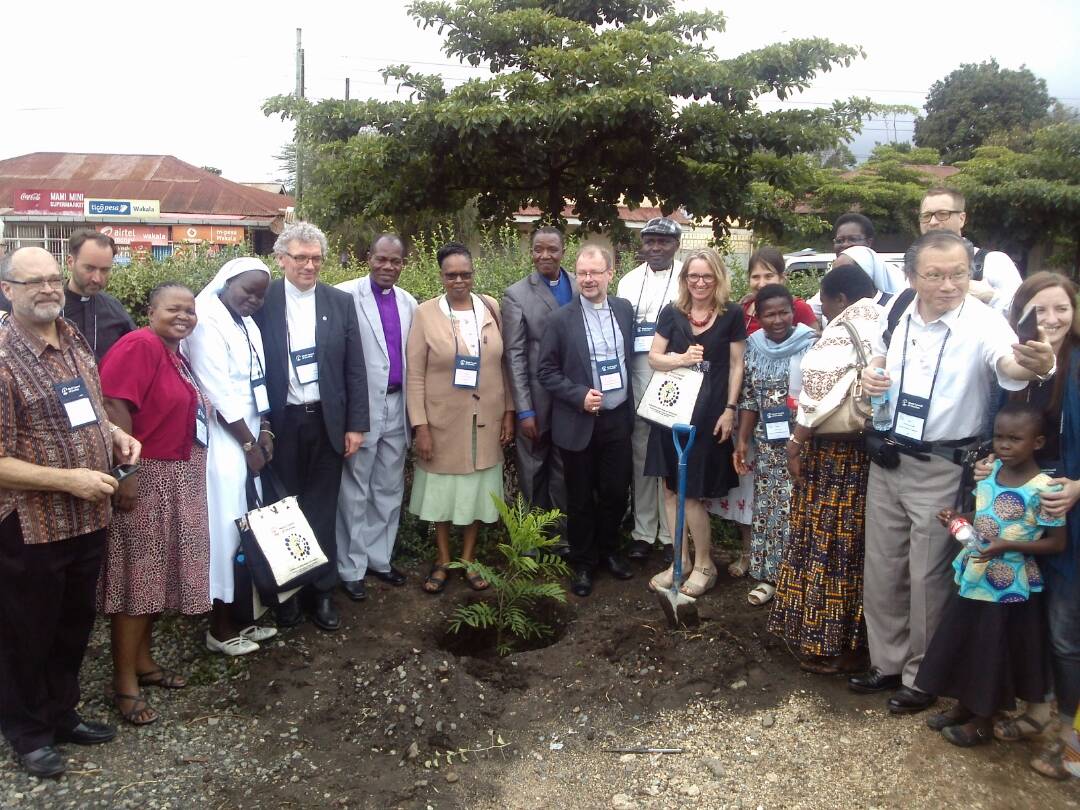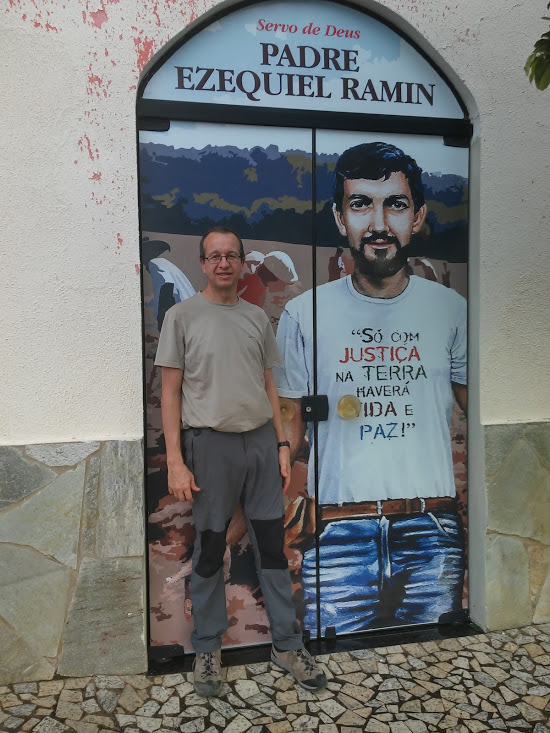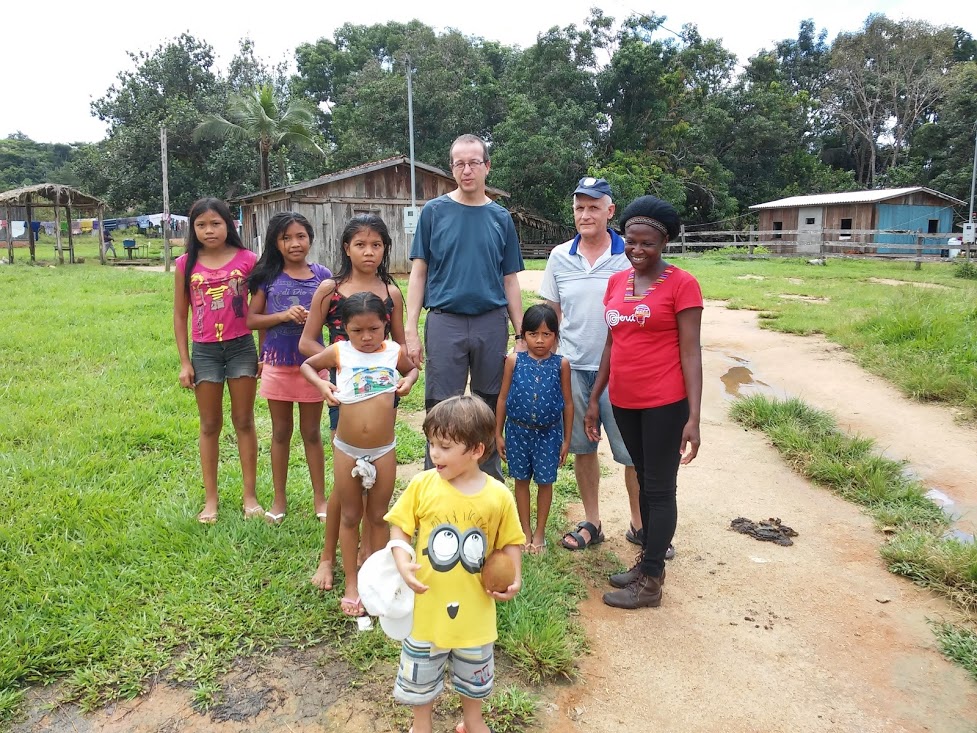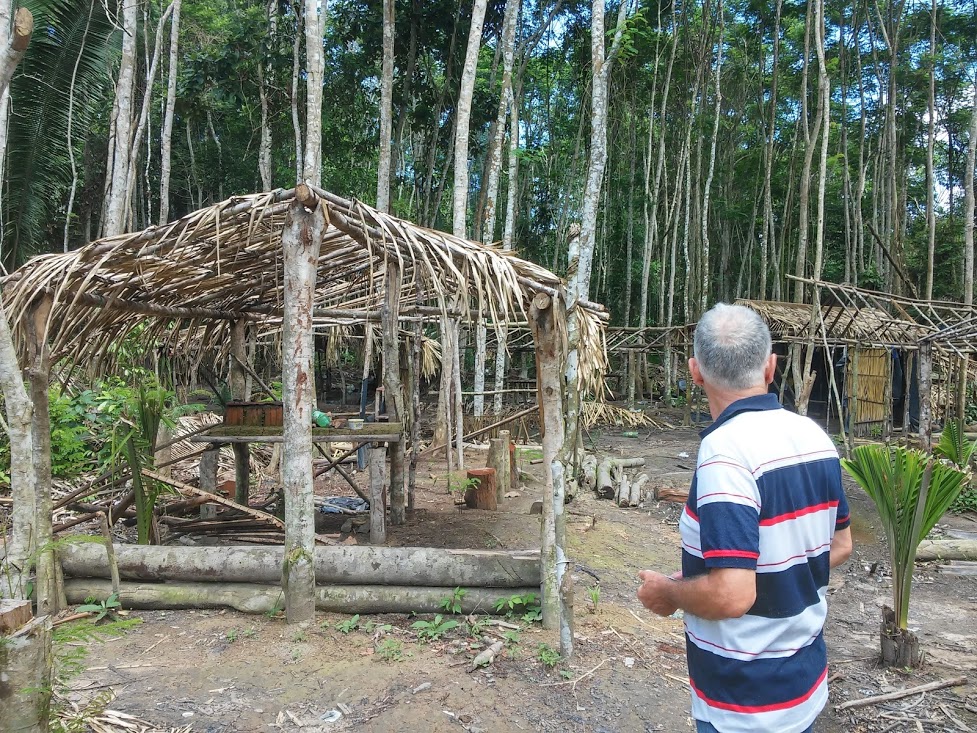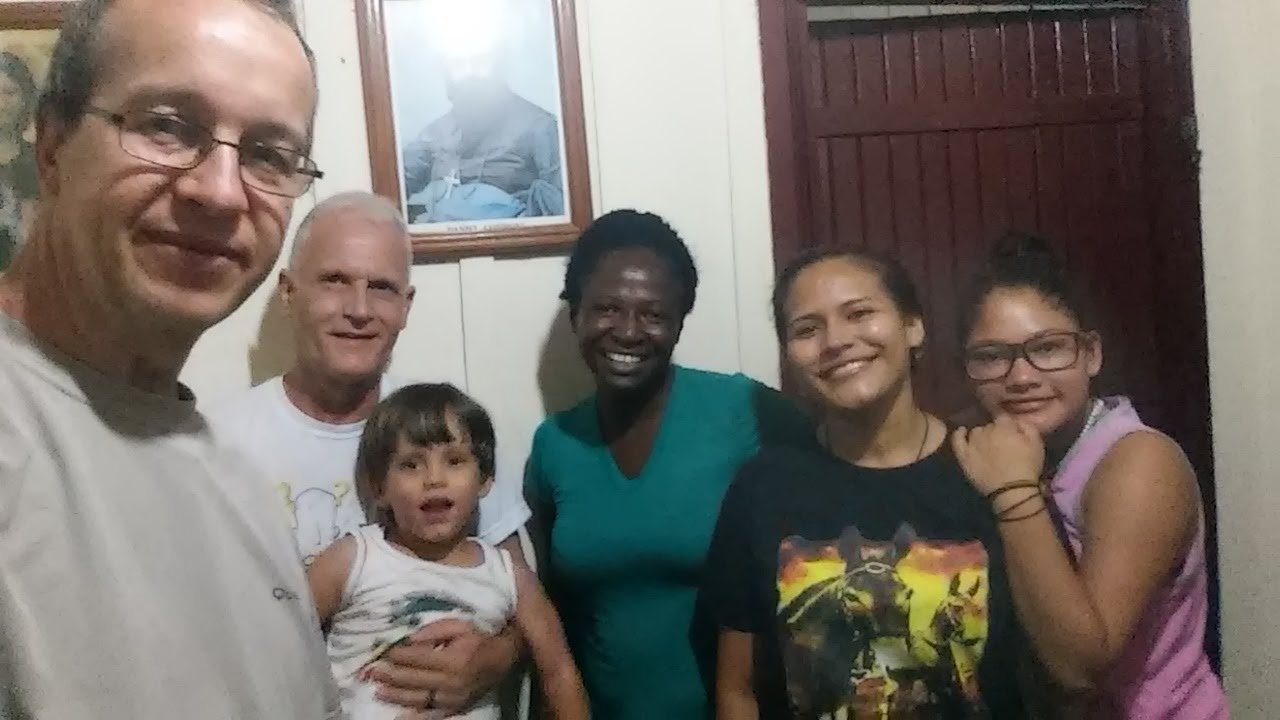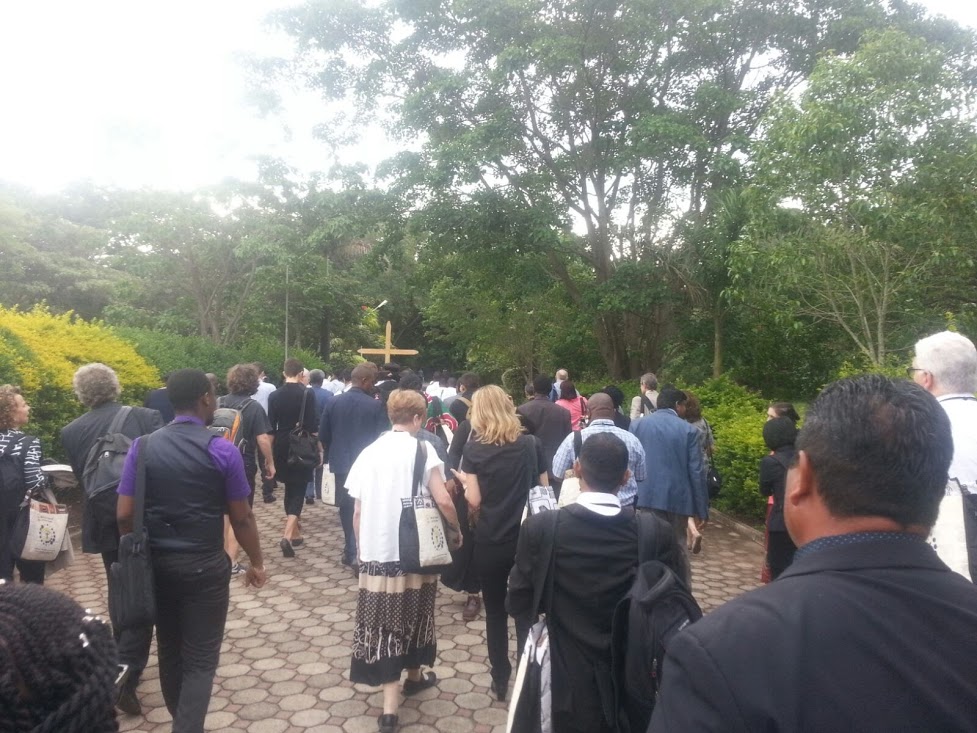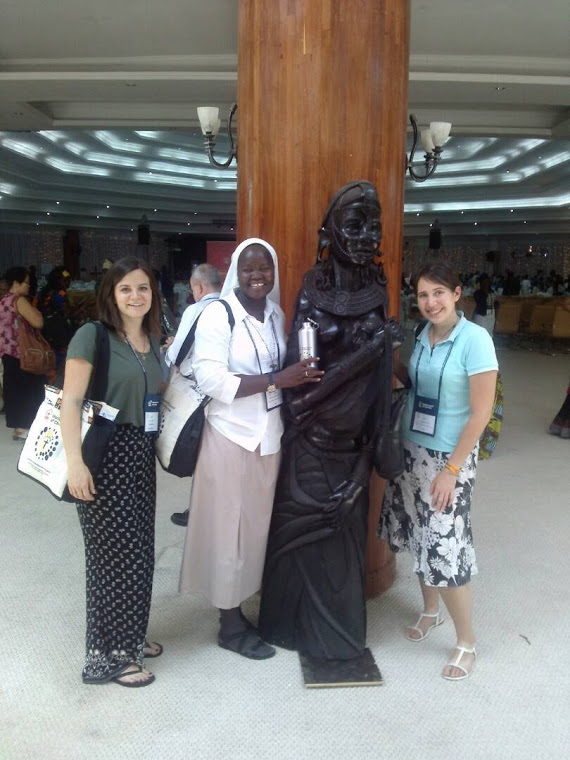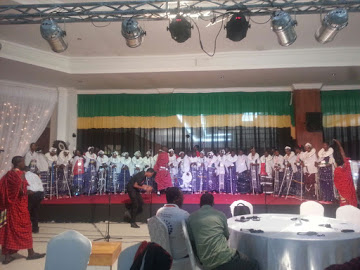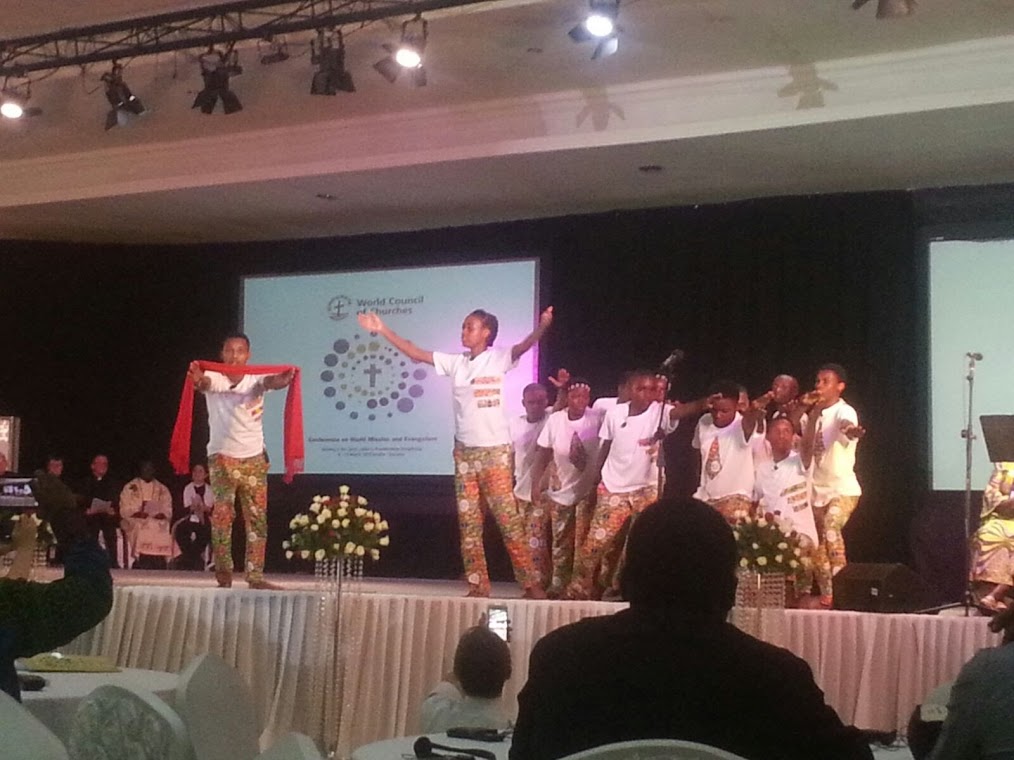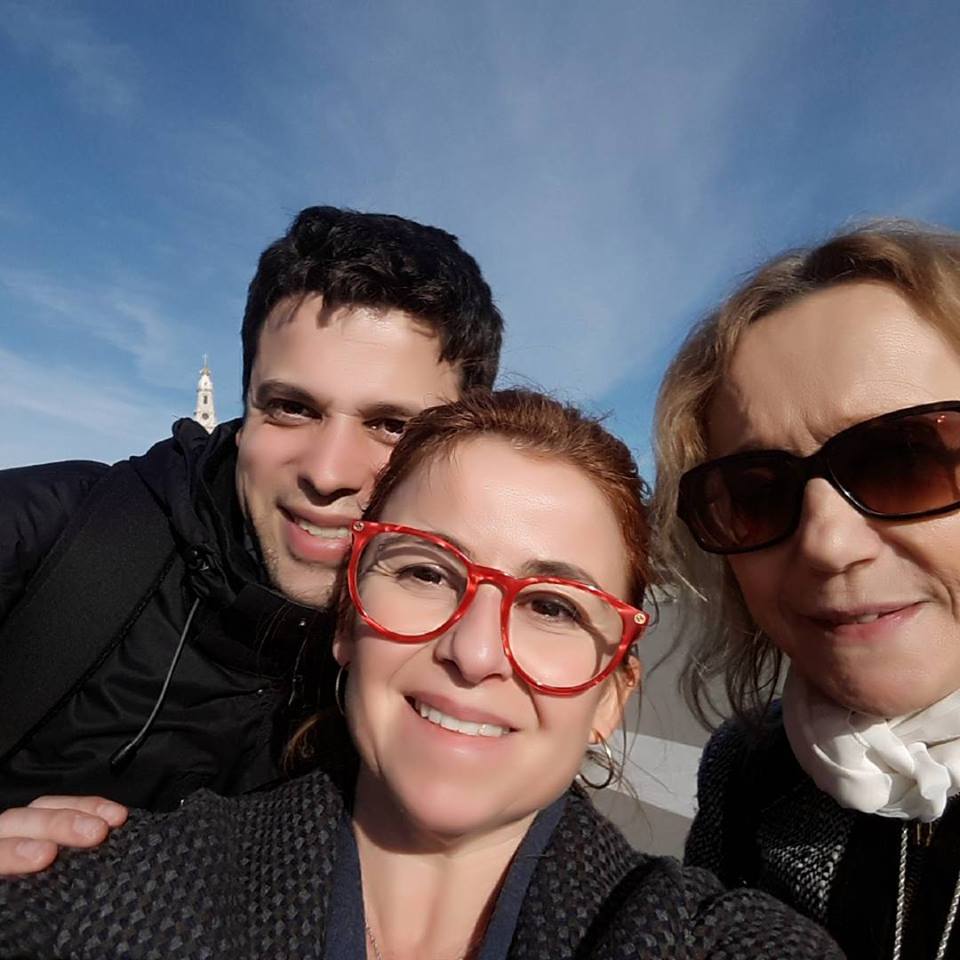Sunday was day when we could pray more together and to learn more about other Christian denominations. We were assigned to different churches in Arusha – myself went to Mennonites. We were very warmly welcome by the local pastors and also the Mennonite bishop. We joined the prayer which was full of joyful songs and dances, prepared by the parish choirs (there were three of them – children’s, youths’ and adults’). There was also reading Bible & preaching and then we heard some more about the Mennonites’ activities in Arusha. And after that we shared the delicious lunch, which gave us occasion to more informal chats and getting to know each other. Very blessed time and beautiful experience of community! The last part of the program was planting the tree.
The last two days of conference continued to be intensive. Full of prayers, sharing and inputs. On one of the days was focused on embracing the cross. We heard very touching speech of Orthodox Patriarch of Syria – sharing his experience of war, showing photos from his recent travel Damascus and the Eucharist they celebrated in the ruins of church and also about the support they provide for the people who are still there – mostly Muslims, but it doesn’t matter, they are suffering brothers, so as Christian is our duty to be on their side and help. There were also other testimonies from different part of the world, where people experience suffering and what “embracing the cross” means in their context. The prayers were also focused on this, some made in the orthodox way of praying.
At the end of the conference the committee was preparing final message, based on what we were talking for last few days and also on what we shared in small groups. And then all the people had chance to comment on it to make this document really something that most of us could say – yes, that’s the essence of what we bring from Arusha and what we want to share with others. This document can be find here – https://www.oikoumene.org/en/resources/documents/commissions/mission-and-evangelism/the-arusha-call-to-discipleship
Those few days in Arusha were really wonderful for me, I’m thanking God for this chance to be there, to pray with all these people, to share with them, to hear so many interesting things, to experience this spirit of unity and openness. I met many wonderful people from all over the world, from all the Christian denominations. And it was amazing that everyone was equal – it didn’t matter if you are just a student or you have a phD or are a professor, didn’t matter if you are just a member of the church or you are the bishop – in front of God we all are His beloved children. And we could really feel it there in Arusha.




